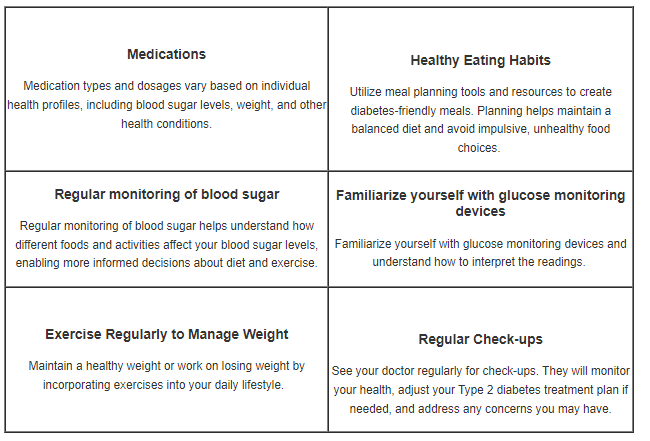
Type 2 Diabetes is a highly prevalent chronic condition - that needs no introduction. In the Indian context, 101 million people are living with diabetes and 136 million people are pre-diabetic with a higher risk of developing diabetes in the near future.
Characterized by insulin resistance and high blood sugar levels, it is important to understand how they are related to manage diabetes effectively. In cases of insulin resistance, absorption of glucose in the body becomes disrupted with a consequent rise in blood sugar levels.
Synopsis
The Role of Diet in Managing Type 2 Diabetes
Every meal impacts blood sugar levels. Choosing the right foods can help maintain these levels within a healthy range. A balance of carbohydrates, proteins, fats, and fibre is important in controlling blood sugar levels and ensuring overall health.
A key tool in creating a diabetes-friendly diet is understanding the Glycemic Index (GI). This index measures how quickly a carbohydrate-containing food raises blood sugar levels. Foods with a low GI (55 or below) are more favourable for individuals with diabetes as they lead to a slower and more gradual rise in blood sugar, aiding in better overall control.
While planning meals for diabetics, consider GI is important to manage blood sugar fluctuations, improve satiety (a sense of feeling full for longer) and weight management, and reduce diabetes complications.
Dietary Recommendations for Diabetics
-
Prioritize whole, unprocessed foods
Choose fruits, vegetables, whole grains, lean protein, and healthy fats over processed snacks, sugary drinks, and refined carbohydrates.
-
Have fibre-rich meals
Fibre slows down the absorption of carbohydrates, contributing to steadier blood sugar levels. At least plan for having 25-35 grams of fiber per day.
-
Limit added sugar & saturated fat
Limit added sugar & saturated fat as they can negatively impact blood sugar and heart health. Opt for natural sweeteners like fruits and spices, and choose lean protein sources like fish, poultry, and beans.
-
Practice mindful eating
Consider when you get hungry & make larger meals into smaller meals. Eat slowly to help prevent overeating and promote healthy portion control.
A few examples of whole grains or complex carbohydrates that you can include in your diabetes diet are:
-
Brown rice
-
Oats
-
Barley
-
Legumes
-
Quinoa
-
Sweet potatoes
-
Whole-wheat bread
-
Non-starchy vegetables like broccoli, carrots & spinach
-
Fruits with a lower glycemic index like berries, apples & pears
Exercise and Its Impact on Insulin Sensitivity
Regular exercise enhances insulin sensitivity, thus helping in better blood sugar management. It also aids in weight management, a key factor in controlling Type 2 Diabetes.
Combiningtype 2 diabetes exercises such as aerobic exercises, strength training, and flexibility workouts can benefit greatly. It helps your body use insulin better. Activities like brisk walking, cycling, swimming, and yoga are excellent choices. Aim for at least 30 minutes for 4 - 5 days a week. But, remember to start with achievable goals, gradually increasing the intensity and duration of workouts. Consistency is key to reaping the benefits of exercise in diabetes management. Add physical activity to your daily routine. This could be as simple as taking the stairs instead of the elevator or walking after meals.
Effective Management of Diabetes
While medications are essential in managing Type 2 Diabetes, they should be viewed as a complement to, not a replacement for, lifestyle changes. Some management tips include:

The Role of Stress and Sleep in Diabetes Management
Effective diabetes management involves more than just medications, diet, and exercise. It needs stress management techniques since stress can cause sleep deficit and adversely affect blood sugar levels and insulin sensitivity. Techniques like mindfulness, meditation, or simple breathing exercises can effectively manage stress. Along with this, try to get quality sleep each night for at least 7-8 hours.
Managing Type 2 Diabetes effectively requires a holistic approach that includes a balanced diet, regular exercise, blood sugar monitoring, and lifestyle adjustments. Be consistent with embracing these changes in your lifestyle, so you can lead a healthy, fulfilling life. Note that small, consistent steps can lead to huge health improvements.
Consult an internal medicine expert in Malleshwaram, Bangalore if you need type 2 diabetes treatment.
FAQ's
Individuals with Type 2 Diabetes must be careful during food selection, as it is important in controlling blood sugar levels. Consumption of food with low GI can stabilize the blood glucose level and prevent spikes.
The following lifestyle changes can help manage Type 2 Diabetes:
-
Sticking to a balanced diet
-
Regular exercise
-
Maintaining a healthy weight
-
Monitoring blood sugar levels
-
Managing stress
-
Getting adequate sleep
Periodic medical check-ups go a long way in preventing complications and ensuring good management of the condition. Visit our doctors at Manipal Hospital Malleshwaram today to get your diabetes checked.



















 5 Min Read
5 Min Read











